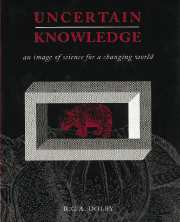Appendix: Summary of cases of marginal and disputed science
Published online by Cambridge University Press: 28 January 2010
Summary
Alchemy
An ancient art. It thrived in Alexandria in Hellenistic times, continued in Arab culture, and came to Europe in the fourteenth and fifteenth centuries. Its primary concern was with the correspondence between the macrocosm and the microcosm, so that knowledge of the transformations of material substances could uncover universal secrets. It became most famous for the search for the transmutations of base metals into gold and for the alkahest, or universal solvent. Its application to medicine (iatrochemistry) thrived in the sixteenth century. Its ideas were carried on after the seventeenth century especially in mystical cults, and its knowledge of chemical manipulation was a direct precursor of chemistry. Isaac Newton was among those in the seventeenth century who studied alchemical manuscripts and did experiments in the attempt to uncover secrets of the tradition (Dobbs, 1975, 1991). Its critics pointed out that its chief insights were expressed in ambiguous allegorical language, so that later alchemists were never quite sure what their precursors had actually achieved.
Anti-fluoridation
In the 1940s, American public health authorities judged that naturally occurring fluorides in local water supplies may be reducing dental decay. A test was set up in which fluoride was artificially added to a town's water supply. It was so obviously successful that untreated towns being used as ‘controls’ soon adopted the same water treatment, bringing the test to a premature end.
- Type
- Chapter
- Information
- Uncertain KnowledgeAn Image of Science for a Changing World, pp. 321 - 342Publisher: Cambridge University PressPrint publication year: 1996



